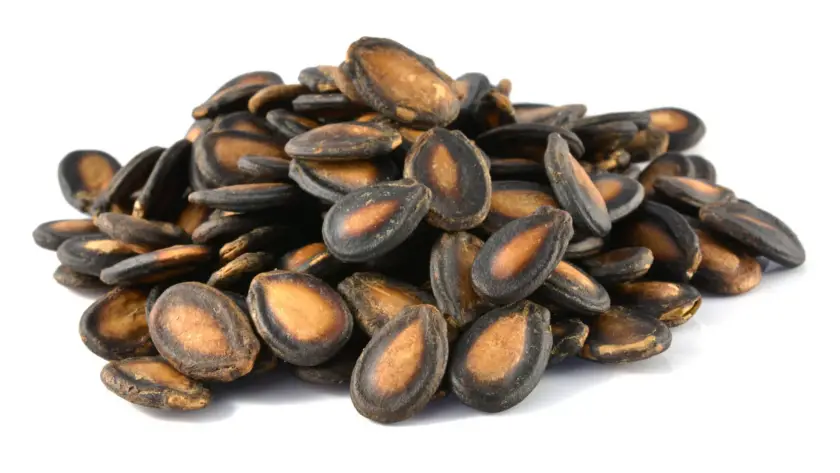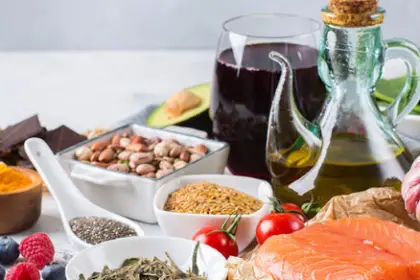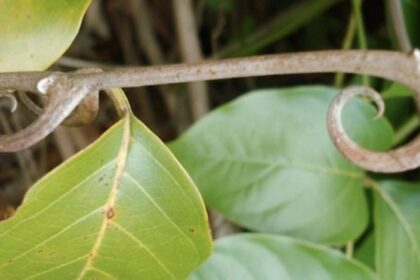As a child, I remember my grandmother telling me that if I ate the watermelon seeds, they’d sprout in my stomach and grow out of my ears. I was quite terrified that this could actually happen, and it seemed my family was too, as we always spit the seeds out, and would even have contests who could spit theirs the furthest!
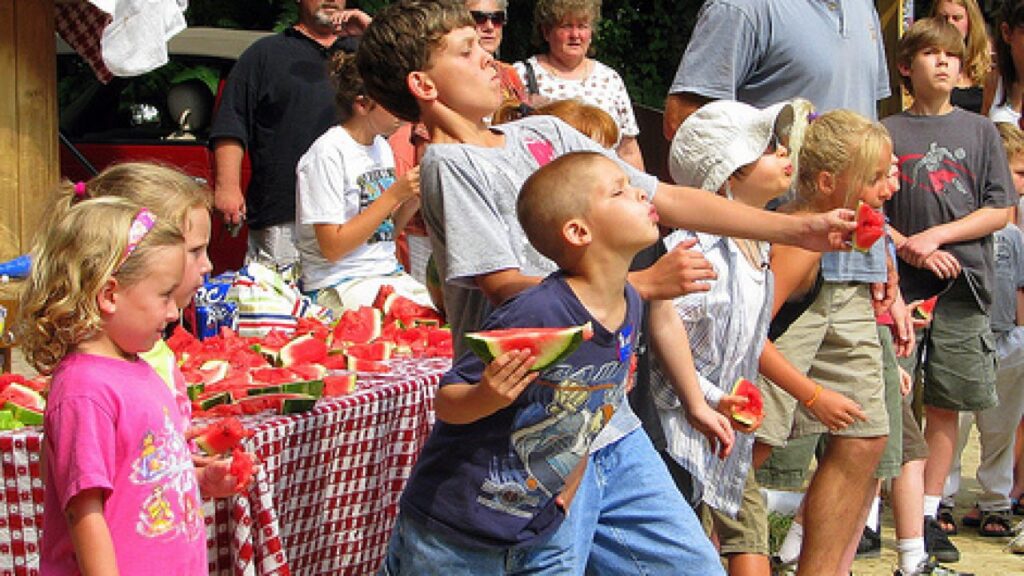
Had my Grandmother known the actual facts of these amazing fruit seeds, she may have instead had us save them, and roasted them just like pumpkin seeds for us all to enjoy. (Recipe at bottom)
Watermelons are native to Africa, but have been spread around the world by traders and merchants for hundreds or even thousands of years. As it turns out, plenty of other cultures don’t just view the fruit as a delicacy, they also enjoy roasting and eating watermelon seeds.
HOW TO EAT
WATERMELON SEEDS
Raw watermelon seeds straight out of the melon aren’t that great to eat. They’re crunchy, fibrous, and slightly bitter. This is due to the thick seed coat that’s protecting the endosperm and other goodies hidden inside—and the hidden part of the seed offers the best flavor and nutrition.
Watermelon seeds are typically roasted or cooked in a wok and eaten similarly to the way we eat sunflower seeds in America. We like to use the watermelon seed recipe at the bottom of this article and eat the whole watermelon seed, coating and all.
WATERMELON SEEDS NUTRITIONAL VALUE
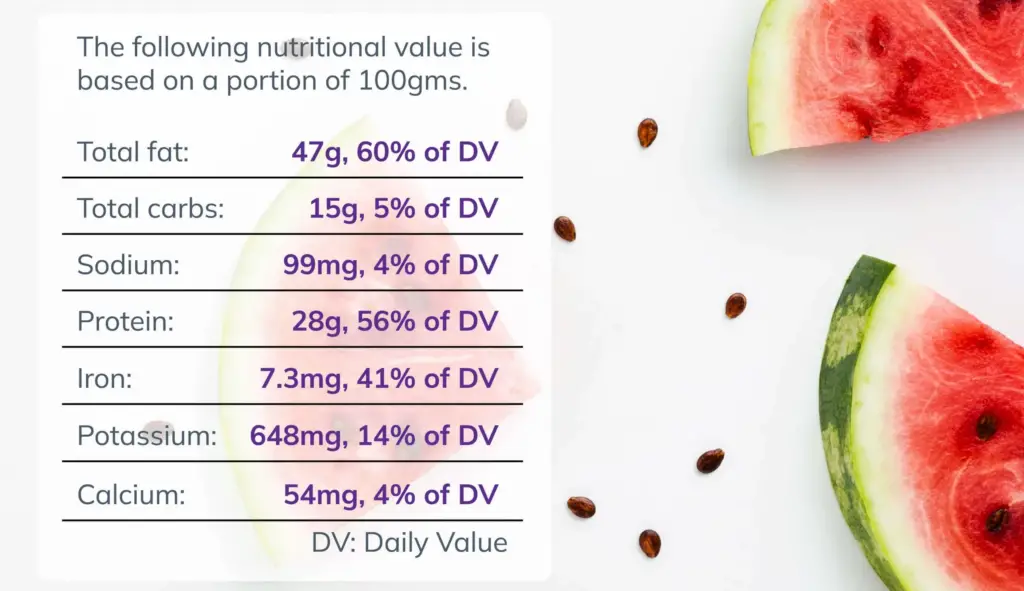
Want another good reason to eat watermelon seeds? Like other seeds and nuts, watermelon seeds are REALLY good for you. Watermelon seeds are high in vitamins, minerals, fiber, and have lots of good fats.
Also, watermelon seeds have an exceptionally high protein content. How high? They pack more protein than common nuts like almonds and sunflowers.
Besides that, watermelon seeds also:
Promote Cardiovascular Health
Watermelon seeds boast a rich content of monounsaturated and polyunsaturated fatty acids, both of which are essential for maintaining cardiovascular well-being. According to the American Heart Association, these fats play a crucial role in reducing the risk of heart attack, stroke, and cholesterol imbalance. By incorporating watermelon seeds into your diet, you can effectively lower your levels of “bad” cholesterol while elevating the levels of the heart-healthy “good” cholesterol.
Strengthen the Immune System
Say goodbye to those pesky free radicals! Watermelon seeds are packed with powerful antioxidants that safeguard your body against these harmful molecules. By protecting your cells from damage, these antioxidants contribute to the fortification of your immune system, reducing the risk of various diseases, including cancer.
Maintain Skin and Hair Health
If radiant skin and luscious hair are your goals, then watermelon seeds can be your secret weapon. These seeds contain a combination of unsaturated fatty acids and antioxidants that work together to promote healthy and youthful skin. Additionally, the protein content in watermelon seeds is vital for supporting the growth of strong and vibrant hair.
Manage Diabetes
For individuals managing diabetes, watermelon seeds can be a valuable addition to their diet. The seeds contain magnesium, a mineral known for its role in regulating carbohydrate metabolism. By influencing blood sugar levels, magnesium in watermelon seeds can contribute to better glycemic control, offering potential benefits for those with diabetes.
Prevent Arthritis
Arthritis, a condition characterized by joint inflammation and pain, can be alleviated with the help of watermelon seeds. These tiny powerhouses contain essential minerals such as magnesium, manganese, and calcium, which play a crucial role in maintaining healthy joints. By incorporating watermelon seeds into your daily routine, you can potentially reduce the risk of developing arthritis and support joint health.
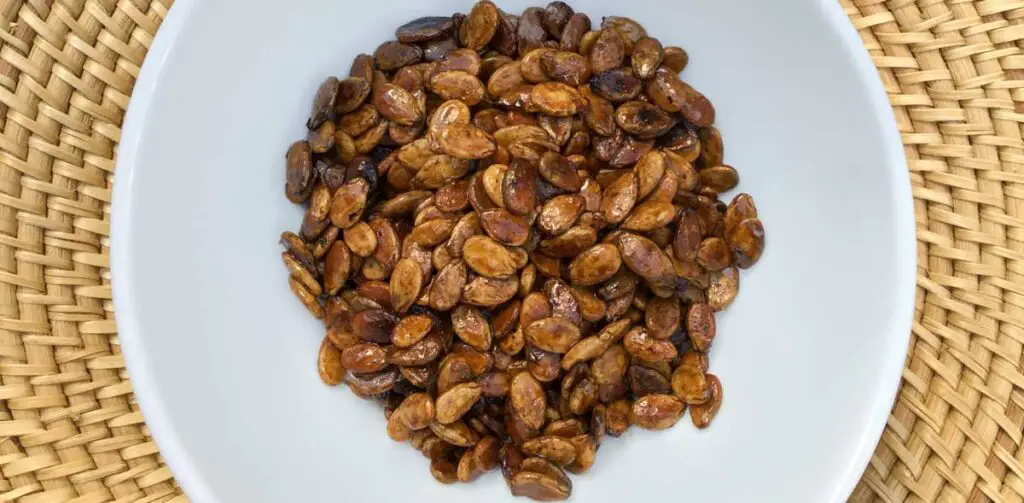
RECIPE: CRUNCHY PAN-ROASTED WATERMELON SEEDS
PREP TIME: 5 MINUTES
COOK TIME: 10 MINUTES
A simple and surprisingly tasty way to prepare watermelon seeds. In other parts of the world, watermelon seeds are a favorite snack – sometimes even more popular than actual watermelon!
INGREDIENTS
1 cup watermelon seeds
2 cups water
1 tablespoon coconut or grape seed oil
1 teaspoon sea salt
INSTRUCTIONS
When eating watermelons, separate the seeds and put them in a colander. Only save the hard, mature watermelon seeds for roasting—not the undeveloped white seeds.
Rinse the fresh seeds thoroughly, removing any sticky film on the seeds and small chunks of watermelon. If you’re not going to eat them immediately, spread them out on a flat surface to dry for long-term storage. You can use fresh or dried watermelon seeds for this recipe.
Heat a skillet or wok on medium high heat (wok preferred). Add *all ingredients. (*If you’d prefer to have flaked salt on your seeds, add it after cooking rather than while cooking.)
Continue to cook until the water boils off. Once water boils off, you’ll want to continuously stir the watermelon seeds to ensure they don’t stick to the wok or burn. Continue cooking until the seeds are browned to the desired level of doneness.
Allow to cool before eating. Depending on the size of the seed used, you can crack open the shell like you would a sunflower seed, and eat the tasty goodness on the inside. You can also eat the whole seed if you’d prefer. They taste just like roasted pumpkin seeds but they have a thick, crunchy seed coating that some people might not like.
According to many grandmothers, cooking watermelon seeds also ensures that they won’t germinate in your stomach and sprout out of your ears.
So, the next time you indulge in a juicy slice of watermelon, consider embracing the seeds rather than discarding them. With their impressive nutritional profile and potential health benefits, watermelon seeds have earned their place as a valuable addition to a well-rounded diet. Embrace the potential of these little wonders and unlock a world of nourishment and wellness.
